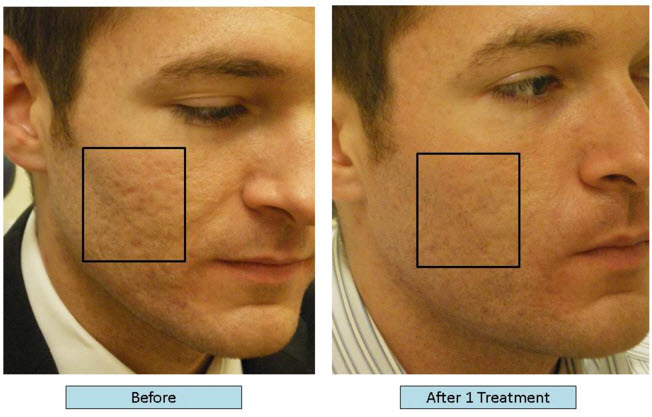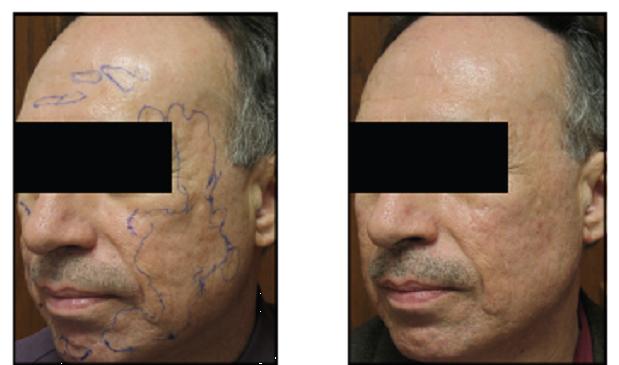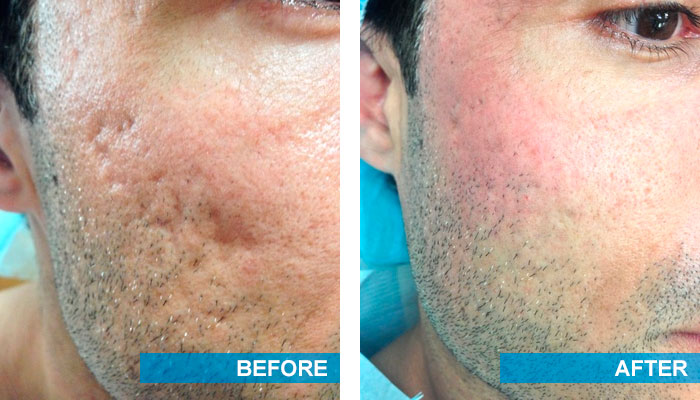Recognizing the Different Skin Problem and Reliable Treatment Choices for Acne Marks
Acne scars stand for a complex interaction of skin conditions that substantially impact individuals' self-worth and total skin health. Understanding the distinct types of acne scars-- hypertrophic and atrophic-- alongside their underlying reasons, is crucial for figuring out reliable treatment methods. Numerous restorative alternatives exist, varying from advanced dermatological treatments to all-natural remedies. The efficiency of these treatments commonly hinges on individualized analyses by qualified specialists. As we discover the landscape of acne scar monitoring, it ends up being noticeable that the trip towards clearer skin may involve more than just topical services.
Types of Acne Marks

On the other hand, hypertrophic marks arise from an overproduction of collagen throughout the healing procedure, causing elevated areas on the skin. These marks are typically firm and can differ in shade, often appearing red or darker than the bordering skin.
Understanding these kinds of acne marks is important for creating an effective treatment strategy - acne and acne scars treatment. Choices might include chemical peels, laser therapy, microneedling, or dermal fillers, customized to the details scar type. A complete appointment with a skin specialist can assist identify the most proper treatment, taking into consideration the person's skin type, scar extent, and overall skin wellness
Root Causes Of Acne Scarring
Scarring happens as an outcome of the body's natural recovery feedback to inflammation and injury triggered by acne sores. When acne forms, it sets off an inflammatory action, leading to the launch of numerous cytokines and development factors that promote recovery. This process can sometimes lead to too much tissue development or insufficient repair, resulting in scars.
The key reasons for acne scarring include the extent of the acne itself, duration of the lesions, and specific skin types. Severe inflammatory acne, such as cysts and nodules, is more probable to result in scarring as a result of much deeper tissue damages. In addition, incorrect handling of acne lesions, such as pressing or selecting, can aggravate tissue injury and inflammation, enhancing the possibility of scarring.
Genetic proneness additionally plays a significant duty; people with a household history of scarring go to a higher threat. Skin kind and color can influence scar development, as darker skin tones might experience post-inflammatory hyperpigmentation, while lighter skin might develop atrophic scars.
Inevitably, recognizing these causes is necessary in managing acne and alleviating the potential for scarring.

Therapy Choices for Scarring
Efficient therapy alternatives for acne scarring differ depending on the type and seriousness of the scars. Normally classified into atrophic, hypertrophic, and keloid scars, these conditions require tailored techniques for ideal outcomes.
For atrophic scars, which are defined by a loss of tissue, treatments such as chemical peels, microdermabrasion, and laser therapy are typically employed. These approaches advertise skin renewal and stimulate collagen production, therefore enhancing skin texture. Subcision, a minimally intrusive treatment, can also work by damaging up coarse bands underneath the skin.
Keloid and hypertrophic marks can be much more testing to treat. Alternatives include corticosteroid shots to reduce swelling and flatten the marks. Sometimes, cryotherapy or laser therapy might be suggested to minimize their look.
Surgical choices are available for serious scarring, where excision or skin grafting might be essential. It's important for people to speak with a dermatologist to evaluate their particular scar kind and discuss the most ideal therapy plan. Incorporating several therapies often produces the most effective end results, making sure that each client's unique skin problem is resolved successfully.
Natural Home Remedy and All-natural Solutions
Natural options and natural remedy can give an accessible technique for individuals seeking to improve the look of acne scars (acne treatment for sensitive skin). Various components found in the home kitchen have demonstrated possible benefits in enhancing skin appearance and promoting healing

An additional effective alternative is lemon juice, which serves as a natural exfoliant and can lighten hyperpigmentation. It should be made use of very carefully, as it might trigger photosensitivity. Oatmeal masks are additionally useful; their mild exfoliation can aid eliminate dead skin cells while relaxing irritability.
Important oils, such as tea tree oil and lavender oil, can further support mark healing as a result of their antimicrobial homes. It is important to perform a spot examination before applying any kind of treatment to guarantee there are no negative reactions. These natural options can be a corresponding approach in the journey to lessen acne scars.
Stopping Future Scarring
Taking on a positive strategy to skin care can considerably decrease the danger of establishing future acne scars. Among the essential techniques is to manage acne effectively as it develops. This includes utilizing non-comedogenic skincare items and medicines prescribed by skin specialists that target acne without irritating the skin. Regular cleansing, peeling, and hydration can visit assist maintain skin wellness and stop clogged pores.
Additionally, preventing the temptation to pick or press acne lesions is crucial, as this can lead to inflammation and succeeding scarring. Instead, individuals need to concentrate on using topical treatments that promote healing and reduce swelling. Active ingredients such as salicylic acid, benzoyl peroxide, and retinoids are recognized for their effectiveness in handling acne and minimizing scars.
Sunlight defense is an additional vital component; exposure to UV rays can darken marks and restrain recovery. Making use of a broad-spectrum sun block daily can mitigate these results.
Finally, maintaining a healthy and balanced diet plan rich in anti-oxidants and staying moisturized supports skin regrowth. By applying these safety nets, people can substantially lower their risk of future scarring and advertise general skin health and wellness.
Final Thought
Finally, a thorough understanding of acne marks, incorporating both hypertrophic and atrophic kinds, is essential for reliable treatment methods. Customized treatments, including specialist therapies and natural remedy, can substantially enhance skin look and texture. Safety nets also play an essential duty in decreasing future scarring. Consultation with a skin specialist remains critical to devise individualized techniques that take into consideration individual skin kinds and mark severity, inevitably boosting the efficiency of mark administration methods.
Acne marks stand for a complex interplay of skin conditions that considerably effect people' self-worth and overall skin health Visit Website and wellness. The two main groups of acne marks are atrophic and hypertrophic scars. These scars are additional identified into three subtypes: ice choice marks, which are narrow and deep; boxcar scars, which are larger and have distinct sides; and rolling marks, which create a wave-like appearance due to unequal skin appearance.
A detailed consultation with a dermatologist can assist identify the most ideal treatment, taking right into account the individual's skin type, mark intensity, and overall skin wellness.
Assessment with a skin doctor stays necessary to devise personalized approaches that think about private skin kinds and mark intensity, ultimately improving the efficiency of mark management strategies.
Comments on “Ideal Acne Scars Treatment: Advanced Techniques for Easier Skin”